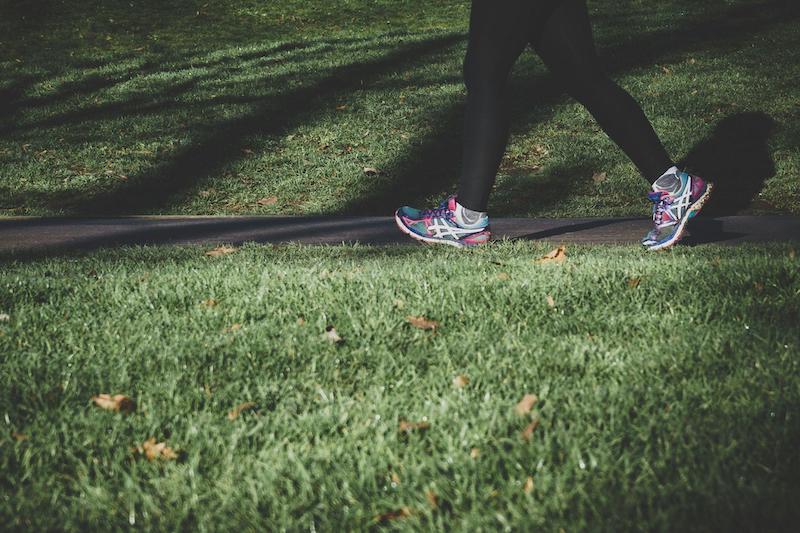
Rest and Recovery to Optimize Your Health Goals
For many people, staying active and regularly exercising is a non-negotiable addition to their daily routine. But whether you are working towards specific fitness goals or simply wanting to feel better in your body, more isn’t always better in the fitness world.
There are many ways to make the most of your rest and recovery days, which all positively contribute to your overall health and fitness goals, including maintaining a healthy and nutritious diet and prioritizing an undisturbed and restful night of sleep. If you are still trying to reach your sleeping goals, it is worthwhile reassessing your mattress quality and bed sizes to ensure you have the proper bed to support your rest.
Plan Ahead
Rest days should be consciously worked into your weekly fitness schedule and not taken on a whim because you feel too tired or your body feels overworked. If you reach the stage where your body struggles to function during the day, you may have pushed your body further than what may be healthy or safe.
By including days into your routine from the start, you will not only ensure your body receives the rest and recovery time it needs, but you will also be less likely to feel guilty about taking time, guaranteeing you take the day off from exercising.
Prioritize Sleep
One of the most important ways to properly utilize your rest day is to ensure you get enough sleep. The National Sleep Foundation recommends that healthy adults get between seven and nine hours of undisturbed sleep.
It is essential to allow your body an opportunity to experience each of the four different sleep cycles we experience during the night. Recovery is best optimized during stages three and four, which are when we are in our deepest stage of sleep.
Nutritious Diet
A healthy, nutritious, and sustainable diet is an essential component of any fitness regime, including rest days. Eating a wholesome, all-natural diet that specifically focuses on delivering your required levels of protein and healthy fats gives your body the nutrients it needs to repair and recover from exercise.
Additionally, you need to ensure you are drinking enough water, which the National Academies of Sciences, Engineering, and Medicine recommends at 15.5 cups for men and 11.5 cups for women daily.

Schedule Regular Massages
Getting a sports massage should not be viewed as a once-off event for an occasional self-care day. In reality, they are one of the most effective tools you can use during recovery as they help to relieve muscle pains and increase blood flow to the parts of the body that need to be repaired. When muscle fibers are damaged through training, particularly weight training, these fibers can become stuck, which prevents them from moving correctly with the muscle tissue underneath, often leading to knots in the soft tissue. Increased blood flow delivers vital nutrients to these areas to support recovery.
Additionally, specific movements can further agitate tight or sore spots in the muscles. However, pressure massage can often be an effective way to relax your muscles and release these adhesions. If massages don’t interest you, you can use foam rollers, lacrosse balls, and other pieces of equipment to reach the necessary spots.
Low-Impact Cardio
Taking a rest day doesn’t mean you have to be stuck inside all day lying in bed or on your couch. In fact, many experts suggest including low-intensely cardio movements, like an easy and relaxed walk around your neighborhood or local park. This is a fantastic way to encourage blood flow to your muscles and help relieve your legs of any soreness or stiffness.
Benefits of Rest Days
There are multiple important advantages and benefits to taking regular and scheduled rest days in your health and fitness regime.
Reduces Injury Risk
Incorporating regular rest days into your fitness schedule is an effective and crucial way to stay safe during exercise. When your body becomes too overworked, you are at an increased risk of falling out of form, dropping weights, or stepping incorrectly.
Furthermore, overtraining a tired body increases your exposure to repetitive stress and strain, which can quickly lead to unwanted and avoidable injuries that will inevitably lead to more time off than you initially planned.

Improves Performance
When your body is suffering from inadequate rest, completing your regular daily routine can be challenging, let alone finding the motivation and strength to challenge yourself with an extra rep or another mile.
You may find the energy to push yourself to get your workout done, but you will likely have a fitness session that is well below your expectations and ability, with reduced endurance, slow reaction times, and poor movement. By incorporating rest and recovery days, you can increase your overall energy and guarantee you will get the most out of each workout.
Prevents Muscle Fatigue
Regular and properly utilized rest days are essential for avoiding exercise-induced muscle fatigue. During your workout, exercise depletes the glycogen levels in your muscles. If these levels are not given adequate time to replenish, it will lead to muscle fatigue and general soreness.
Muscles need glycogen to function properly, regardless of whether you are working out or not. By ensuring your body gets the necessary rest it needs, you allow your body to return to a balanced state with restored glycogen levels.







